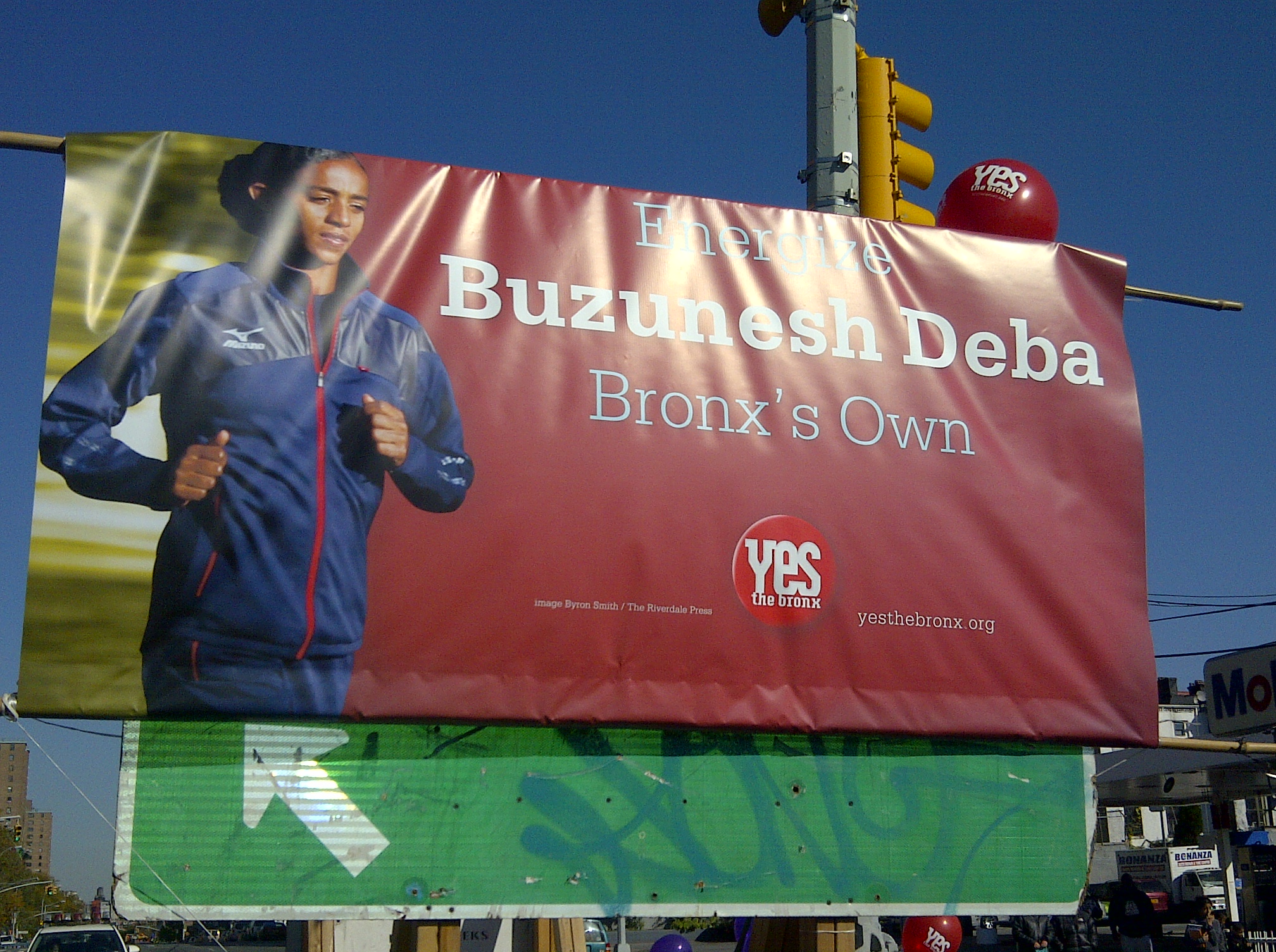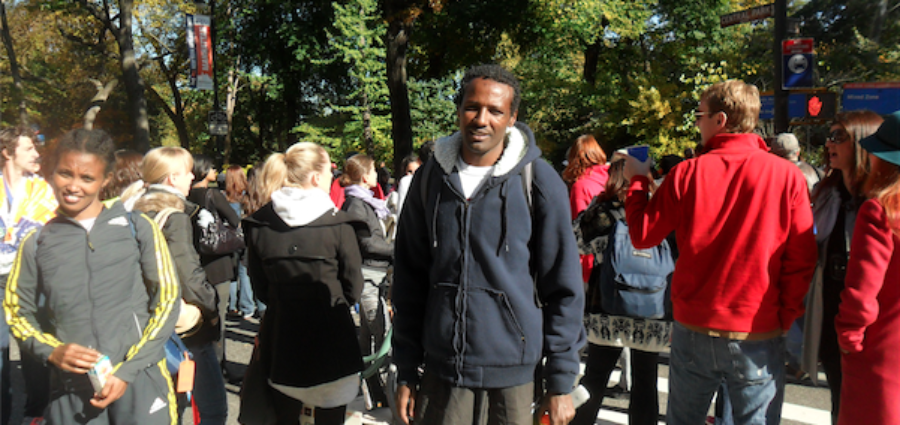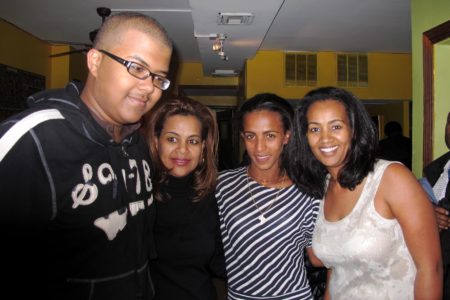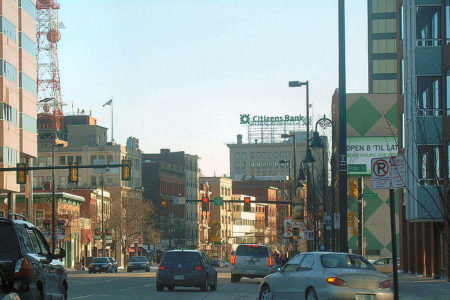Fikadu Lemma braved the early November frost in Van Cortlandt Park on Saturday morning, pumping his legs, stretching his triceps, in a final half-hour push before his run in the world-class New York Marathon on Sunday.

“I am not nervous,” said the soft-spoken Ethiopian runner who has lived nearby in a Kingsbridge apartment for more than three years. Indeed, Lemma along with his two Ethiopian roommates, quietly trained for months, out of the media spotlight.
More attention has been paid to Ethiopia’s defending running champion, Gebre Gebremariam, and two Kenyans, Emmanuel and Geoffrey Mutai, who share a common name.
The Kenyans, who have increasingly dominated long distance races, vowed to not only win, but also to beat the record time. On Sunday, they did just that when Geoffrey crossed the finish line at 2:05:05, a New York Marathon record. Emmanuel followed 01:23 later, setting his own course record. The defending champ, Gebremariam, came in fourth.
Ethiopia’s Firehiwot Dado, 27, won the women’s title in 02:23:15 finishing four seconds ahead of Buzunesh Deba, the local favorite from the Bronx. Mary Keitany of Kenya, who was leading for much of the race, came in third. Other Ethiopian athletes didn’t fare quite as well.
Lemma, 28, who came in 18th in New York Marathon last year, finished a disappointing 19th this year. He had hoped that additional training and praying would help push him closer to number one this year. “At the tenth mile mark, I felt pain in my leg. I pushed myself, but it was not good,” said Lemma.
Half a dozen Ethiopians, wearing scarves decorated with their country’s flag, gathered outside Central Park on West 69th Street to greet and to hug the runners. Lemma’s mood was not celebratory. “It’s okay,” one man shouted as Lemma walked away from the cameras.
Two things set Lemma apart from his fellow Ethiopian long-distance runners. He is tall, and he hails from West Shawa, which is in the Oromia region of the country. The majority of Ethiopian athletes come from the south-central highlands of Arsi.
A pioneer athlete from his local village in Ambo zone, Lemma had worked as a runner for 16 years, a career tainted by injuries that has taken him to Japan and around the world. He ran for a Japanese club before coming to the U.S., and prefers the shorter, and fast-paced cross-country run. But he has taken part in almost all types of races including the demanding Steeplechase.
Lemma has been running on and off in spite of a left leg injury. He usually runs 10K and half-marathon. As his injury steadily improved this year, Lemma started trying his luck with longer races. Since his return to the field four months ago, he’s won a number of smaller races including the Coney Island 5K race, the18th annual Pit Run 10K Race in Oneonta, New York, and the 11th annual Mayor’s Trophy 5K Run in New Jersey. Today, he clocked 02:20:41, five minutes and 29 seconds short of his personal best of 2:15:12 in the Marathon.
Many in Lemma’s rural village have barely heard of the Bronx. But Bronx is home to 14 Ethiopian athletes, in total. Lemma shares a room in a West 195th Street apartment with two friends, Ketema Nigusse and Alem Ashebir, who also trained for Sunday’s race.
At Willis Avenue bridge post, activists from Yes the Bronx, a non-profit organization that seeks to challenge negative stereotypes about the borough, and Assemblyman, Marcos Crespo of District 85, shouted, “welcome to the Bronx,” standing under a billboard, “Energize Buzunesh Deba, Bronx’s Own”, as runners flew by.
New York offers many opportunities and challenges for the Bronx-based Ethiopian athletes. The city is a perfect gateway to races in the States as well as around the world. In Ethiopia, travel abroad can be daunting and disruptive to training schedules. From the Bronx, domestic travel is one short train ride to an airport in Manhattan with a possibility of a return flight home.
But the challenges are many. Lemma and most of his friends do not have a coach. He trains himself, often alone, when his friends are away competing in races around the country. He also has no health insurance, which could leave him financially strapped when he has a major injury. Lemma’s lower ankle injury, a likely culprit in today’s dismal performance, has gone untreated by a specialist as a result.
The professional athlete visa that grants them entry into the U.S does not allow them to hold regular jobs. So they have to make a living solely by running.
“This is our job and if you try hard, you can make a decent living out of it,” said Lemma, with a winning grin on a recent Thursday. He acknowledges that it can be tough when there are not enough races to go around. “Bills don’t give us a break when the sport does,” he said speaking in his native Oromo language.
In addition, his training grounds at Van Cortlandt Park and Central Park are not located at the high altitudes that are preferred by long distance runners.
To work around it, Lemma goes for longer distances at an increased pace. Some of his friends temporarily move to higher altitude locations in New Mexico, California, and Arizona. A handful visit and spend months in Ethiopia when training for highly selective races.
Sitting on the bench overlooking an empty Van Cortlandt football field three days before the Marathon, Nigusse and Lemma discussed the challenges of their chosen profession and a friendship that has survived their intense competition on the track.
Nigusse, for example, spent two months in Ethiopia training near Addis Ababa, Ethiopia’s capital, this summer. That training paid off for the 30-year old father. Since returning from Ethiopia, he won Philadelphia’s 10-mile race, Brooklyn’s rock ‘n’ roll 10K, the Japan Day 4 Miler, and second place in the Pittsburg Marathon and the Straton Faxon Fairfield Half Marathon.
Nigusse, who along with his wife is a permanent resident of the United States, first came to participate in Nashville’s Marathon in 2008. He has gone back and forth to Ethiopia numerous times since both to visit his son, Fraol, and to train. His son lives in Addis Ababa with his grandparents. Nigusse is already thinking ahead. That’s why he opened a sports clothing store in Addis Ababa.
“A rat with two holes can’t be trapped,” said Nigusse repeating a recognizable Oromo proverb. He insists he is not ready to quit. “I am just getting started and I’ve big hopes in the future.” Nigusse who decided against running in this year’s marathon, only hours prior to the race, gave no reasons.
Despite today’s performance, Lemma’s passion for the sport lives on. At the conclusion of the race, Lemma, who was limping, managed a wry smile and said, “I’ll go back to Ethiopia and train better for next year.”
“Sometimes that’s all you can do, try your best.”








